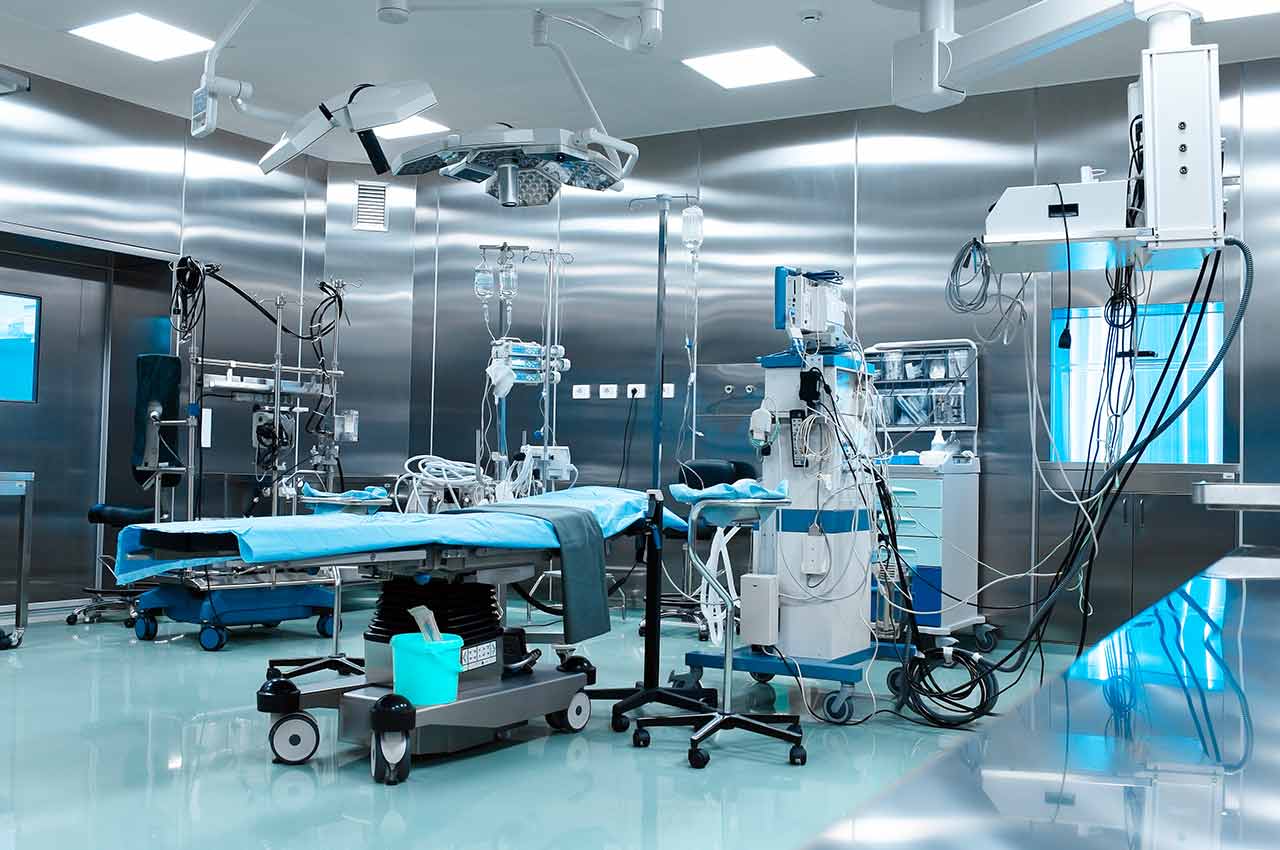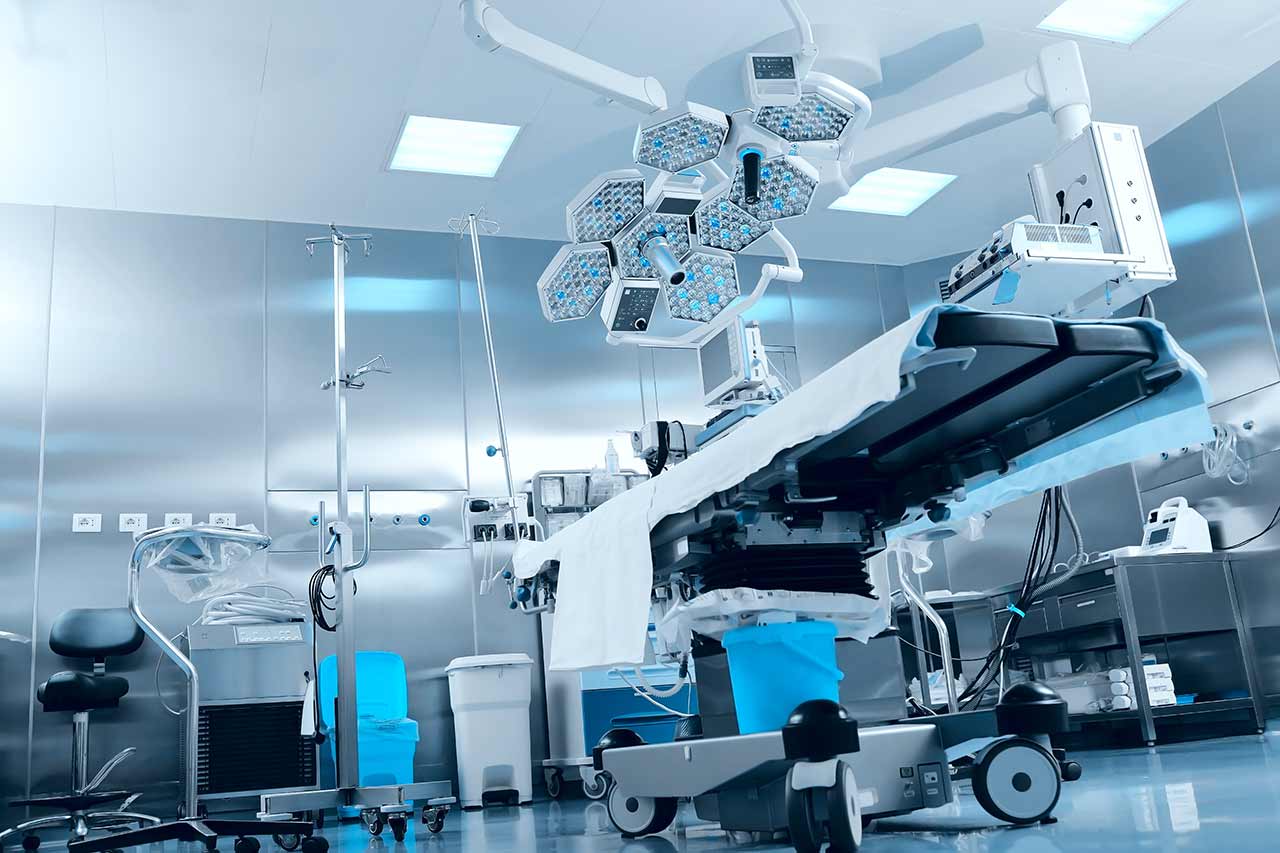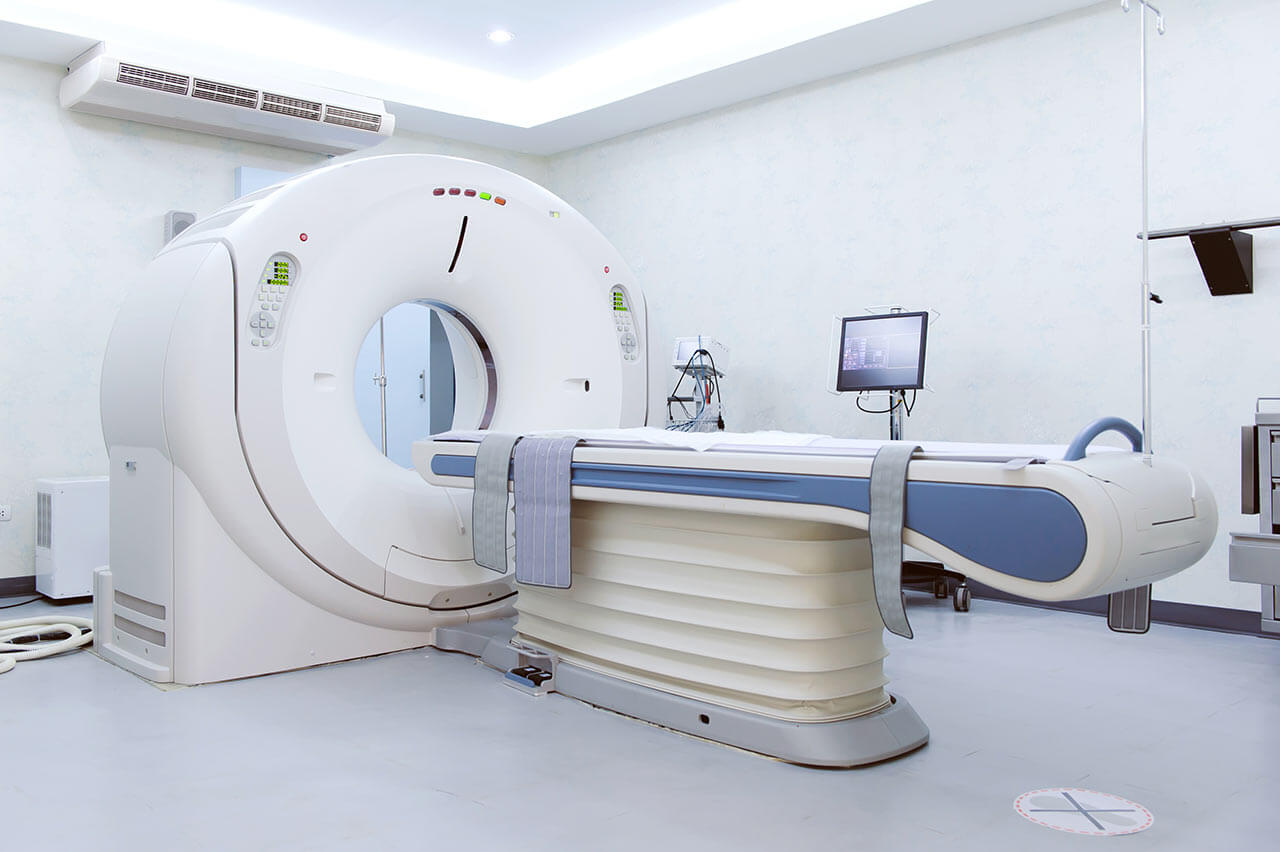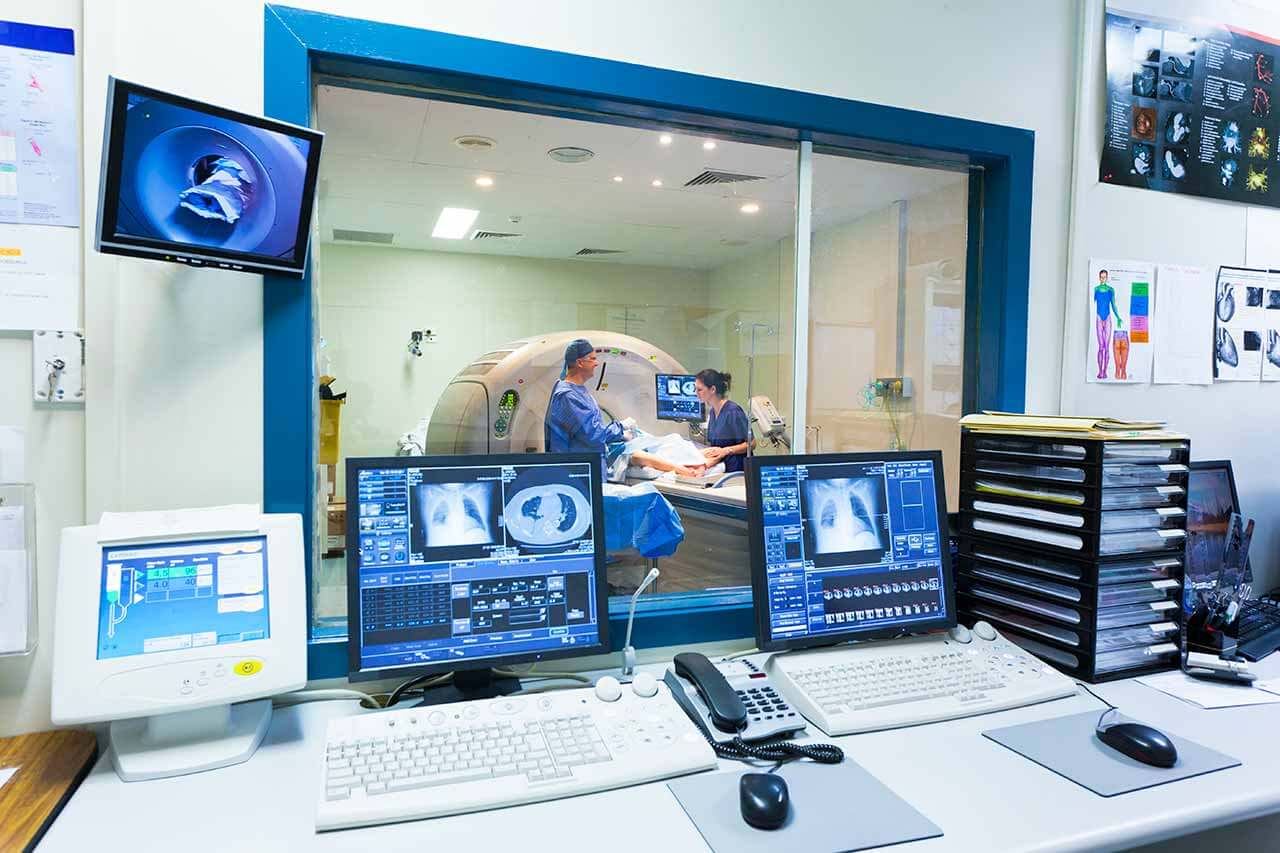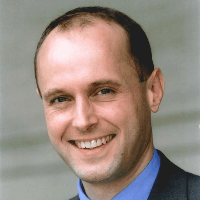
The program includes:
- Initial presentation in the clinic
- clinical history taking
- review of medical records
- physical examination
- laboratory tests:
- complete blood count
- general urine analysis
- biochemical analysis of blood
- TSH-basal, fT3, fT4
- tumor markers
- inflammation indicators
- indicators of blood coagulation
- CT / MRI of the abdomen and retroperitoneum
- abdominal and retroperitoneal ultrasound scan
- full curse of radiotherapy
- nursing services
- consultations of related specialists
- explanation of individual treatment plan
How program is carried out
During the first visit, the doctor will conduct a clinical examination and go through the results of previous laboratory tests and instrumental examinations. After that, you will undergo an additional examination, including complete blood count, laboratory assessment of liver and kidney function. Based on the received results, the physician will conduct radiotherapy planning with the help of CT or MRI, make the permanent tattoo marks on the skin and conduct CT simulation in order to assess the accuracy of the rays and the radiation dose. If necessary, related medical specialists will be involved in the elaboration of a treatment regimen (tumor board).
Radiation therapy is carried out as the day hospital procedure, without mandatory admission to the hospital. At each visit, the physician will assess your general condition and the marks on the skin. After that, you will be placed in a shielded radiation therapy room, on a special table.
Each radiation therapy session lasts less than half an hour (including preparation). All this time, doctors and nurses are monitoring your condition, you can communicate with them through a loudspeaker. The procedure is completely painless. Depending on the planned course of treatment, you will visit the hospital from 1 to 3-5 times a week.
After the completion of the radiation therapy course, you will undergo control examinations aimed at assessing your condition and efficacy of treatment. After that you will receive the medical report with detailed recommendations regarding further follow-up and treatment. In the future, you will be able to have a distant consultation with your attending physician and schedule the next course of treatment, if necessary.
Required documents
- Medical records
- MRI/CT scan (not older than 3 months)
- Biopsy results (if available)
Service
You may also book:
 BookingHealth Price from:
BookingHealth Price from:
About the department
According to the Focus magazine, the Department of Radiation Therapy at the University Hospital Frankfurt am Main ranks among the top German medical facilities in the area of its specialization!
The department offers all types of modern radiation therapy for cancer treatment at the highest level of university medicine. The priorities of the department's work include the treatment of tumors of the gastrointestinal tract, urogenital system in men, gynecological tumors in women, oncopathologies of the nervous system, as well as head and neck tumors. Each department's specialist strives to ensure all the patients with the most effective and at the same time customized treatment. Due attention is also paid to radiation protection. The Chief Physician of the department is Prof. Dr. med. Claus Rödel.
Radiation therapy with chemotherapy and surgical treatment are the main treatment methods for many types of cancer. The chances of recovery are often increased due to a combination of different treatment methods. Thus, more than half of all cancers are curable today. The department's clinical activities are based on interdisciplinary collaboration of radiologists, medical physicists and radiobiologists. The department annually treats more than 1,300 patients with oncopathology, and this figure rises annually. As part of the University Cancer Center, the department guarantees each patient comprehensive treatment in accordance with the international standards.
The department is proud of its outstanding scientific achievements, which allow for the implementation of innovative treatments. Currently, the research activities of the specialists are focused on clinical research of targeted radiation therapy and interstitial brachytherapy, the combination of radiation with molecular targeted therapy and the concept of multimodal organ-sparing therapy.
The service range of the department includes:
- Organ-sparing radiochemotherapy in superficial or intramuscular sarcoma (as an alternative to surgical treatment)
- Preoperative radiochemotherapy in esophageal or cardial, pancreatic and rectal cancer
- Radiochemotherapy in anal canal cancer, as well as primary inoperable pancreatic cancer
- Postoperative radiochemotherapy in brain tumors
- Preoperative and postoperative radiochemotherapy of ENT cancers, bronchial cancer, as well as soft tissues
- Organ-sparing radiation therapy in breast cancer in women (with intraoperative radiation therapy)
- Consolidating or postoperative radiation therapy in prostate cancer
- Intraoperative (interstitial) radiation therapy (brachytherapy) in cancer of the prostate, cervix and uterus body
- CyberKnife (targeted radiosurgery)
- Other medical services
Curriculum vitae
Education
- 1987 - 1994 Study of Human Medicine at the University of Erlangen-Nuremberg.
- 1993 - 1994 Practical year in Jerusalem (Israel) and Glasgow (Scotland).
- 05.05.1994 State Examination.
Professional Career
- 07.1994 - 12.1995 Internship at the Clinic Bamberg and in the Department of Radiation Therapy at the University Hospital Erlangen.
- 01.1996 - 07.2002 Research Fellow in the Department of Radiation Therapy at the University Hospital Erlangen.
- 04.1996 - 12.1996 Research Fellowship at the University of Minnesota, Minneapolis, USA.
- 09.2000 - 09.2001 Postgraduate training in Diagnostic Radiology at the Institute of Diagnostic Radiology of the University Hospital Erlangen.
- 14.05.2002 Board certification in Radiation Therapy, Bavarian Medical Association.
- Since 3.2007 W3 Professor and Head of the Department of Radiation Therapy at the University Hospital Frankfurt am Main.
- Since 04.2008 Clinical Director of the University Cancer Center (UCT) Frankfurt (Oncological Center of Excellence of the German Cancer Aid).
Scientific Career
- 18.01.1995 Doctoral thesis defense, Medical Faculty of the University of Erlangen. Subject: "Effect of a simultaneous chemoradiation with cisplatin on the proliferation behavior of B14 cells in vitro".
- 06.02.2003 Habilitation, Medical Faculty of the University of Erlangen. Habilitation and Venia legendi in Radiation Therapy. Subject: "Prediction of tumor response in the simultaneous radiochemotherapy of rectal and bladder carcinoma".
Scholarships and Awards
- 1987 - 1994 Student Scholarship for highly gifted students from the State of Bavaria.
- 1996 Promotion Scholarship from the Bavarian Radiological Society.
- 2004 Hermann Holthusen Prize of the German Society for Radiation Oncology (DEGRO).
- 2005 ARO Award for Clinical Research in Radiation Oncology of the Working Group on Radiological Oncology (ARO) of the German Cancer Society.
- 2016 Research Award of the German Cancer Society (main prize winner).
- 2017 Breur Award of the European Society of Radiation Oncology (ESTRO).
Membership and Cooperation in Scientific Societies and Organizations
- Member of the "Principal Investigators" in Frankfurt as part of the German Consortium for Translational Cancer Research.
- Member of the German Society of Radiation Oncology (DEGRO), American Society for Therapeutic Radiology and Oncology (ASTRO) and Fellow of the European Society of Therapeutic Radiology and Oncology (ESTRO).
- Board Member of the Working Group on Radiation Oncology of the German Cancer Society.
- Founding Member of the Interdisciplinary Bladder Cancer Working Group (IABC) of the German Cancer Society.
- Expert Reviewer of the German Cancer Aid, Commission on Clinical Studies in Oncology.
- Collaboration in the S3 guidelines "Colorectal carcinoma" and "Bladder carcinoma" development process.
- Member of the Academy of Ethics in Medicine.
Photo of the doctor: (c) Universitätsklinikum Frankfurt
About hospital
According to the reputable Focus magazine, the University Hospital Frankfurt am Main ranks among the top German medical facilities!
The hospital was founded in 1914 and today is a well-known German medical facility, which combines rich traditions and scientific innovations. A medical team of more than 6,500 employees cares about the health of patients around the clock, ensuring them with the highest standards of medical care and best possible safety.
The hospital has 32 specialized departments and more than 20 research institutes, which have all the necessary resources for the provision of the most effective care for any patient. The hospital has 1,488 beds for inpatient medical care. The medical facility diagnoses and treats more than 51,000 inpatients and about 44,800 outpatients every year. Due to the demonstration of outstanding treatment results, the number of patients seeking medical care here increases significantly annually.
The hospital presents all areas of modern medicine, whereas its special competence lies in neuroscience, oncology, cardiovascular medicine, cardiac surgery and other fields. Many treatment methods available here are unique not only in Europe, but also internationally.
Photo: (c) depositphotos
Accommodation in hospital
Patients rooms
The patients of the University Hospital Frankfurt am Main live in comfortable rooms made in modern design and meeting the highest standards of European medicine. Each room is equipped with an ensuite bathroom with a toilet and a shower. The standard room includes a comfortable, automatically adjustable bed, a bedside table, a wardrobe, a table and chairs for receiving visitors and a TV. If desired, patients can use Wi-Fi. The patients can also stay in the enhanced-comfort rooms.
Meals and Menus
The patient and his accompanying person have a daily choice of three menus. If for any reason you do not eat all the food, you will be offered an individual menu. Please inform the medical staff about your dietary preferences prior to the treatment.
Further details
Standard rooms include:
Religion
Religious services are available upon request.
Accompanying person
During the inpatient program, an accompanying person may stay with you in a patient room or in a hotel of your choice.
Hotel
During the outpatient program, you may stay in a hotel of your choice. Managers will help you choose the most suitable options.
